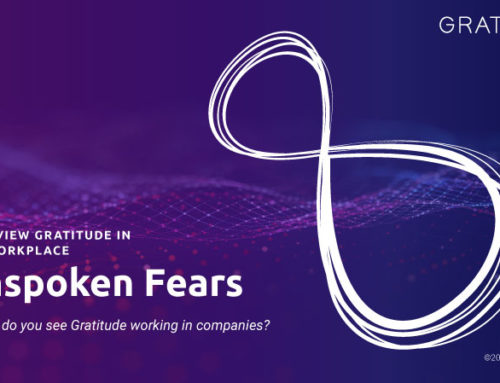I’ve worked as a mentor, advisor, and coach to more than 25 seedling startups, six or so small businesses and four corporate incubators.
I bring to that perspectives and insights developed over 40 years of living and working in Silicon Valley.
Some of this came into play as I downloaded the fourth element of Gratitude Games.
Early in my career, I worked as an advertising account manager at Apple, Intel, and Seagate, working with Regis McKenna, Steve Jobs, Andy Grove, Al Shugart, Syd Iftikar, and Finis Conner.
While I didn’t understand at the time, I sat through Quarterly Management Reviews at Intel and saw how Andy Grove used these drive execution and success.
Years later I got a much better idea of how these reviews worked when I read Andy Grove’s book, High Output Management.
Then much later I read the book Measure What Matters by John Doerr and everything fell into place, those earlier insights and my current work as a startup coach, using OKRs as a core tenet of startup execution.
Today, I assist clients in operationalizing Objectives and Key Results, starting a holy crap three-year perspective, a WTF one-year landscape, and an aggressive but attainable three-month plan.
Today in management meetings at my startup clients, we set quarterly OKRs and review progress against each key result, initially once a week and now, two or so quarters into it, once of month.
When we review the progress on Key Results, they update the rest of the team and assign a completion percentage for how much of the Key Result was accomplished.
They assign a completion scale (0.0 to 1.0) to acknowledge efforts taken towards its full realization.
And, week after week, it cues their neurocircuitry to think it terms small steps and not rely on last-minute heroic leaps, which will begin altering how they see and chunk future objectives into small steps, accomplished each week.
In the same weekly management meeting, we brainstorm next-week’s key results to produce, rating the difficulty and confidence of each key result, also a scale of 0.0 to 1.0.
Again, this goes to programming your neurocircuitry to become more prudent and realistic in all or most of your promises and forecasts, another cornerstone for cascading Gratitude in a workplace.
This rigorous focus on achieving weekly key results defines a strategic gameboard of startup operations and its expected level of play (crushing key results) while surfacing the growing inter-dependencies within the company and throughout its ecosystem (a second-order perspective of the startup and its relationships).
It’s also a lightweight protocol, unlike heavy-weight ones of Lean Six Sigma or CoBIT.
So weekly inspections of key results don’t take a lot of preparation, require a black belt to set up, or divert lots hours of time each week to do
You know, inevitably, the people part of building a company becomes a part of almost every conversation.
In each call I provide a neutral safe space for founders to reflect and gain new perspectives.
One of the most important advantage-point perspectives emerges with their having a relationship with their firm and not just doing stuff within it.
With mindfulness, they find themselves in a relationship with their startup, customers, investors, and industry.
Once they begin to see the day-to-day stuff through the lens of those relationships, after each weekly review they become a bit more professional, fact-based, and perspicacious leader.
Once entrepreneurs or leaders have a relationship with their business, as they might have with partner, they also begin to deepen the relationship that they have with themselves.
And with that deep recognition, Gratitude becomes a super power for the transformation of entrepreneurs AND their startups.
At some point in their growing level of self-knowledge, a foundational change occurs in all of their relationships.
They experience what strikes outsiders as the paradox of limitless Freedom and total, non-stop Responsibility.
Or as Jocko Willink, former Navy SEAL, says, “Discipline equals freedom.”
They step into a 24 by 7, moment-to-moment reality of
“I own the company and
the Company owns me”
And, I must emphasize in the boldest way possible, this represents a highly functional relationship of the highest order of mastery. Nowhere in this do they experience compromise, lack, or depletion. Just the opposite, they experience a fullness, serenity, and power that, when blended, becomes Gratitude.
It’s more akin to adopting a child. You know, for some adoptive parents, they just wake up one day with the full weight and boundless joy that they have crossed some point of no return and are now “all in” in loving their adopted son or daughter.
From that point forward, those adoptive parents begin playing a Gratitude Game of the highest order, learning how to love without condition, and how to be transformed by another’s love of them, and how to model all that for their children and those around them.
As entrepreneurs adopt their startups, as they accept the full weight of bringing a new life into the world.
They become something more than just a guy or gal running a business.
And that’s why I love working with young entrepreneurs and being a midwife of sorts in that transformation.
On the other side of the transformation, in slow motion, entrepreneurs learn how to play at masterclass levels.
And their startups or businesses become super-charged vehicles for bringing undiluted goodness into the world, serving a higher common good than just making money.
And, yet because of all that, the company will end up making more money than its competitors and capturing a high share of total sector market capital.


